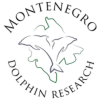Our intern&volunteer coordinator Selina Brouwer writes for DMAD We have been waiting for so long, the day has finally come… We are back in the south of Montenegro, we are back in Ulcinj, we are back where it all started almost 5years ago!! After multiple lockdowns and many restrictions these last months we had to wait till the weather cleared up. Finally, we could do some surveys in the south! Of course, we planned it very carefully and efficiently, like always. So first we went to Ada Bojana, to have a goodbye party for our dear colleagues Tim & Laura. Soon Tim will start his PhD in the cold, rainy but also beautiful Scotland. This means he has to leave us after 3years of loyal service. The DMAD team wishes him and Laura all the best in the future. Hopefully, we will see each other again in the near future!! So back to the surveys…It all started with an early morning survey in Utjeha, and from there we went back to Ulcinj where we spent the upcoming 3 days, there we did the whole day surveys 🙂 It started well, in Ulcinj our new intern Duru already spotted a dolphin, close to the shore. Unfortunately, we didn’t see it again. After that, the sea state went worse and we had to stop the survey and had no other choice to enjoy the beautifulness of Ulcinj.The next day we started at 4:15 in the morning and we continued till 19:00 in the evening. Unfortunately again no dolphins, but we keep motivated to continue the next day. This morning we started at 5:30, the sea state was beautiful, like a mirror. But again no Dolphins…..where are they? are they hiding from us? or stay away because of the many Jetski’s? Nobody knows…..It was 3 intense days but the perseverance of the interns was amazing! Let see if we can find the dolphins in Kotor bay next week! Sweet greetings from Montenegro!!
